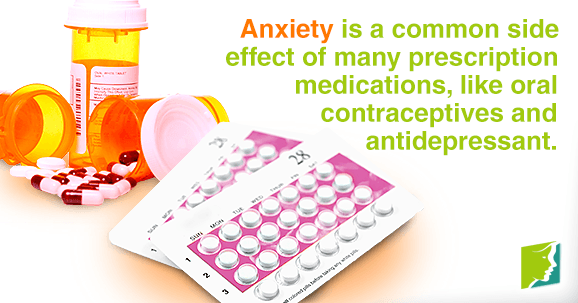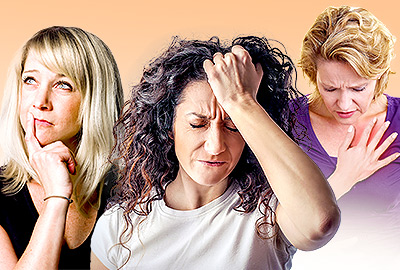One out of three people report experiencing persistent stress and excessive anxiety on a daily basis. Stress and anxiety can cause insomnia, fatigue, and irritability. This can be linked to hormone fluctuations women experience after puberty, particularly during menstruation, pregnancy, and menopause. Stress and anxiety cause a heightened sense of alertness and alarm, which can result in fatigue and affect your ability to carry out daily tasks. Anxiety and stress go hand in hand and can become a vicious cycle. This article features common and uncommon triggers of stress and anxiety.
Hormone Fluctuations
This is one of the primary causes of anxiety and stress in adult women. Women experience hormone fluctuations during menstruation, pregnancy, and menopause. Older women going through the menopause transition are at a higher risk of experiencing anxiety because estrogen levels fluctuate, decrease, and then stay consistently low during the menopause transition.
Excessive Stress
High stress - either at work or at home - is a direct causes of anxiety. It becomes a vicious cycle because anxiety leads to more stress over irrational things. Remember that stress and anxiety are often accompanied by physical symptoms such as stomachache, headaches, dizziness, and sweating.
Genetics
Those with a family history of high stress and anxiety are at a higher risk of developing an anxiety disorder. Some people may have a genetic predisposition that gives them a greater chance of suffering from anxiety disorders. If a family member experiences anxiety, it's likely that you will as well, though not a guarantee.
Medications
Anxiety is a common side effect of many prescription medications, like oral contraceptives and antidepressant medication. Additional prescription medications that may make symptoms worse include thyroid medications, asthma inhalers, and diet pills.
Emotional Trauma
Experiencing emotional trauma - like the death of a loved one or witnessing a tragic event - can trigger stress and anxiety. For example, planning a funeral on top of dealing with loss can be overwhelmingly stressful.
Heart Conditions
Heart conditions and other major illnesses can trigger anxiety because of the stresses of medical bills and other physical symptoms experienced. About one-third of people experience anxiety symptoms such as heart palpitations and shortness of breath.
Lifestyle
Poor diet and an inactive lifestyle can lead to high stress and anxiety. Maintaining a healthy diet and exercising regularly are known to help fight anxiety and stress.
Stress is defined as a response to a threatening situation. In excess, stress can affect your health and cause symptoms like headaches and insomnia. Anxiety is described as a psychological state that is characterized by overwhelming feelings of nervousness, worry, and tension. Stress and anxiety are common psychological disorders that can cause irritability and insomnia, as well as inhibit the ability to carry out everyday tasks. Hormone fluctuations and an unhealthy lifestyle can trigger stress and anxiety.
Sources
- National Institute of Mental Health. (n.d.). Anxiety Disorders. Retrieved October 2, 2014, from http://www.nimh.nih.gov/health/publications/anxiety-disorders/index.shtml
- Office on Women's Health. (2012). Anxiety disorders fact sheet. Retrieved October 2, 2014, from http://www.womenshealth.gov/publications/our-publications/fact-sheet/anxiety-disorders.html




